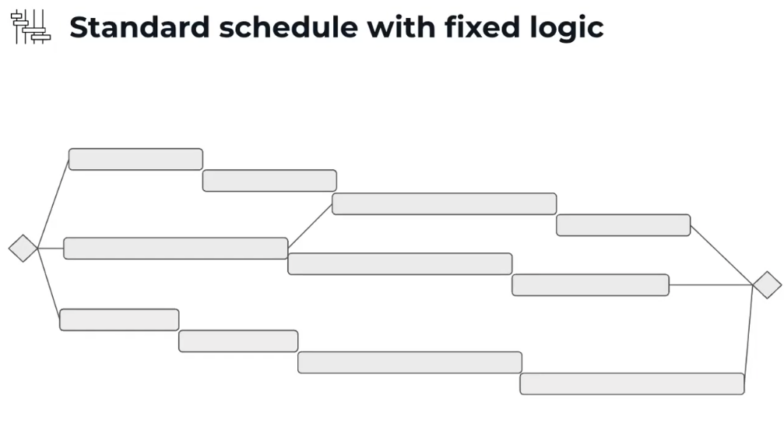Today's Analyst Call featured Georgia Stillwell, Head of Professional Services EMEA, for ALICE Technologies to talk through Generative Risk Mitigation; what it is and why it's important.
Before Stillwell began her presentation, BuiltWorlds Research Analyst, Alexis Adams, set the stage for this discussion by giving the group a preview of the results of our 2023 Pre-construction Annual Report. The findings of that report indicated that 84% of the respondents (made up of contractor companies) use some form of software to aid them in their preconstruction planning. With only 7% of the companies not using any solution for preconstruction. This paints a picture that preconstruction planning and adoption of technology in that phase of projects is not only critically important, but is the industry standard.
Stillwell began her presentation on generative risk mitigation and intelligent project controls by echoing Alexis' sentiment that preconstruction planning, in terms of reducing risk, is key to ensuring that your project is able to stay on track - which has been a challenge that has plagued the construction industry for decades.
"We're so used to project overrunning, it's not even a shock anymore, in fact, we're a bit desensitized to it"- Georgia Stillwell
Companies who currently leverage preconstruction software (~84% of the industry) can still run into issues with overrun on their schedules because most of them are using tools where scheduling is rigid and/or fixed meaning it doesn't offer the ability to adapt and therefore cannot be changed outside of pushing the expected completion date back further and further (see image below). Stillwell says that this is not a realistic solutions to address issues that appear on construction sites. There will always be factors that can shift how a schedule will change over time and it's important to use software that can keep up with those changes.

Stillwell continued on to break projects into 3 categories of risk; fragile projects - those that will break if a small change is introduced, resilient projects - those that can withstand some change, and antifragile projects - those that can actually improve with changes. ALICE and their AI-powered software aims to put contractors and the projects they're working on into that third category. By leveraging what Stillwell calls "Hard Logic" ALICE Technologies' scheduling solution allows contractors to take unforeseen factors, that would typically create issues, and address them before they negatively impact a project.
Watch the recording to see how this groundbreaking software is working in real-time as Stillwell walks audience members through a live demonstration using actual data points from a recent project.
If you enjoyed this analyst call we have plenty more in store for you!
Our analyst calls are programmed to occur nearly every week and cover a wide-range of topics. Most analyst calls are reserved for members. Check out our events calendar to learn more and also view our membership options for a membership plan that will make sense for your business and allow to join our network of over 1,000 industry leaders pushing the AEC ecosystem forward.


Discussion
Be the first to leave a comment.
You must be a member of the BuiltWorlds community to join the discussion.